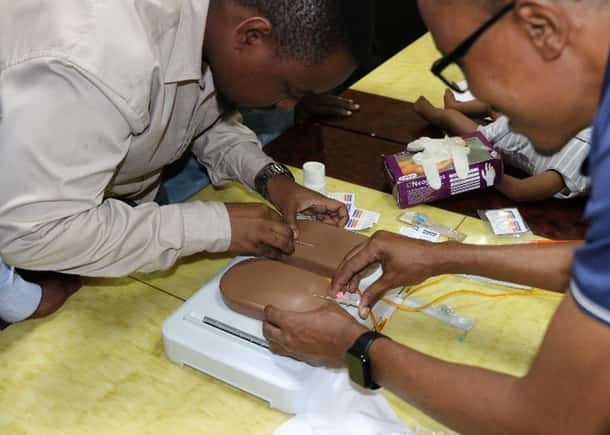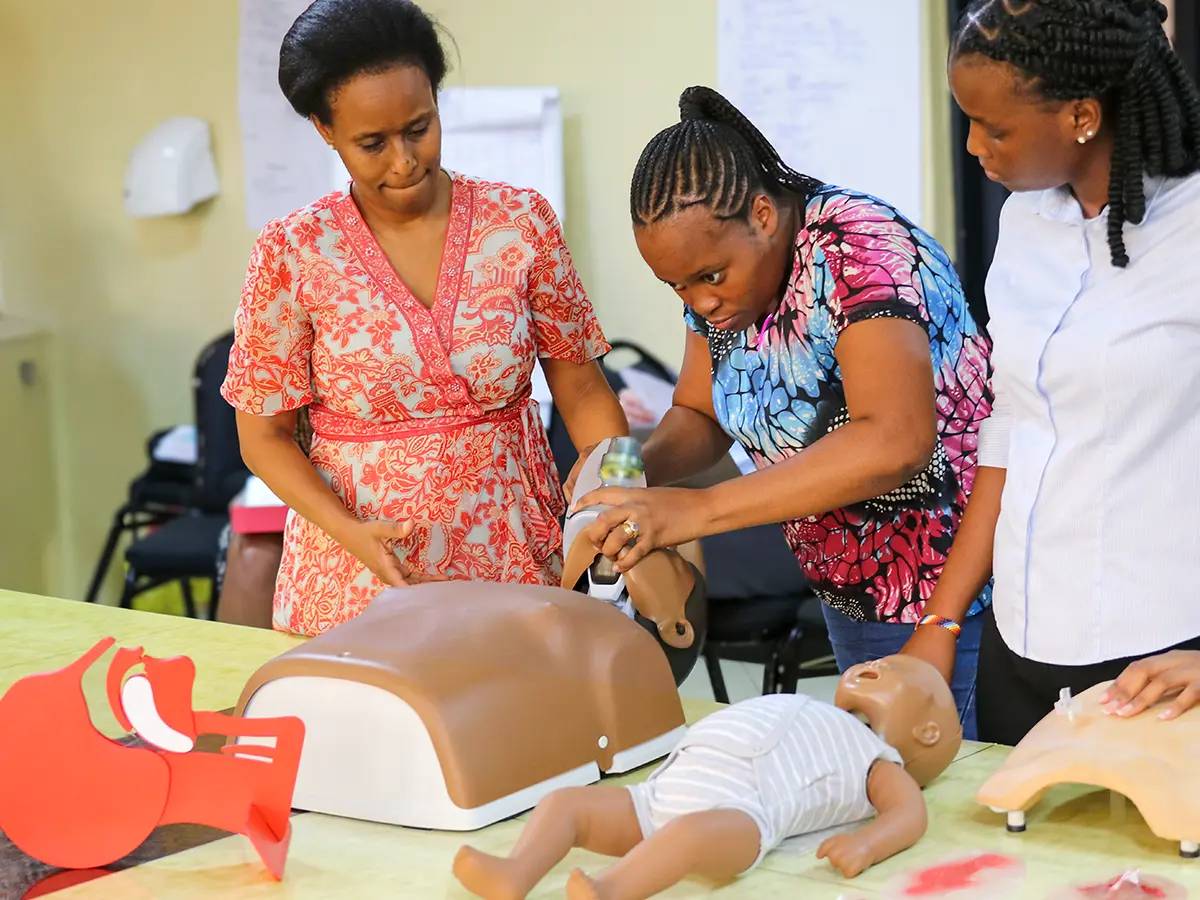Working with WHO to improve access to Basic Emergency Care training


Emergency medical conditions, defined as those requiring interventions within minutes to hours, result in about half of all deaths globally.
The World Health Organization's Basic Emergency Care (BEC) program was developed to address these preventable deaths. BEC is an open-access training course for frontline healthcare workers to reduce time-critical deaths in low-income countries.
Introduced in 2018, the WHO's 5-day Basic Emergency Care course has shown significant impact on reducing mortality from a range of emergency conditions including pneumonia, diarrhea, asthma, post-partum hemorrhage, road traffic injury and diabetic crisis. Based on this success, the WHO has launched a large-scale campaign to extend its reach to nurses and midwives in 25 countries by 2025.

To ensure cost-effective scaling and long-term impact, Laerdal collaborated with the WHO to address challenges and contribute to the program's expansion. This revised program incorporates e-learning modules, redesigned training equipment, and an innovative new portable learning lab, enabling cost-effective scaling and facilitating facility-level refresher trainings.
Reduce time away from clinical practice
To reduce time away from clinical practice, Laerdal developed a condensed, interactive e-learning program in partnership with the WHO Academy. This approach reduces face-to-face time from 5 to 2 days, saving costs and minimizing disruption to clinical duties.
Increase access to training for skills
To improve access to training materials, Laerdal developed an affordable, portable Learning Lab, weighing only 7 kilograms, that contains everything needed to support hands-on skills training. The kit is distributed on a not-for-profit basis through Laerdal Global Health making it affordable for low- and middle-income countries. The estimated cost reduction is 90% compared to equipment used today. 
Transition from training to practice
The affordability of the kit enables individual hospitals to acquire them for on-site facility level refresher trainings, which is essential to maintain skills and impact over time.
In March 2024, the new BEC hybrid course was introduced at a highly successful field test in Dar es Salaam, Tanzania. The Ministry of Health of Tanzania has been at the forefront of scaling up the Basic Emergency Program, having already trained more than 3000 healthcare providers with a goal to train 1600 more by year end.

During the field test, 24 learners and 12 master trainers were trained to deliver the new hybrid BEC course. With the introduction of this new hybrid version, Tanzania will further expand the program using this innovative approach.
We have seen a great impact of the Basic Emergency Care training so far – patients are much better stabilized when they are referred now than earlier. We count the hybrid version of the Basic Emergency Care program as a savior to us; it will enable us to scale the program much further in the country and have a bigger impact on helping save lives
The impact potential of this program is significant. Laerdal aims to produce the Emergency Care Learning Lab by summer to support the scale-up of the WHO 25x25 campaign in additional countries and continue to support the ongoing collaboration with the WHO and other organizations involved in scaling up the Basic Emergency Care course.
Learn more about the first ever Basic Emergency Care hybrid course pilot here.